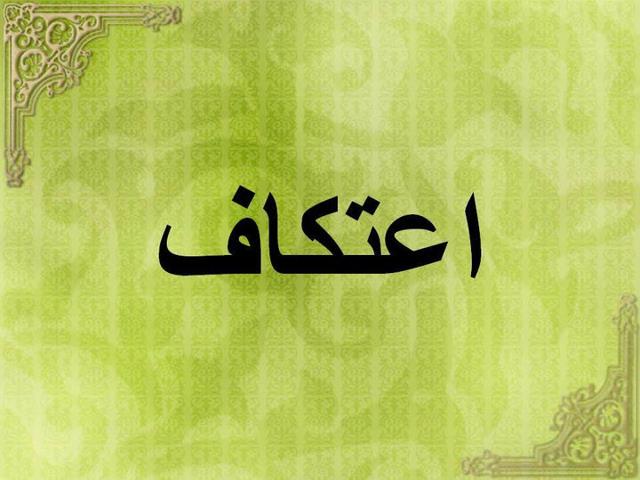Iteqaaf in Ramadan
As these are last few days of Ramadan, Muslims all around the world has increased their efforts to make the most of every remaining moment. Though every day of Ramadan has its own importance but the last ten days of Ramadan are the most blessed one and we (Muslims) should enhance our devotion and worship as these days hold the greatest jewel of Laylat-ul-Qadr, also known as the night of power, which Allah Almighty describes it in Holy Book Quran as being better than a thousand months. According to people, the Holy Prophet (PBUH) used to exert himself in worships and devotion during the last ten days of Ramadan to greater extent than at any other time. Aisha (Ra) reported:
“With the start of the last ten days of Ramadan, the Prophet (PBUH) used to tighten his waist belt (i.e. work harder) and used to pray the whole night, & used to keep his family awake for the prayers.”
Itikaf is the Sunnah of Holy Prophet Muhammad (PBUH) as per which He used to spend the last ten days in isolation with minimal human contact and all His time was spent in worship and reverence of Allah Almighty. There many hadiths of Holy Prophet (PBUH) that shows the observance of Itikaf by Him. Hazrat Aisha narrated that:
“Prophet Muhammad (PBUH) used to perform Itikaf in the last ten days of Ramadan until Allah the Mighty and Majesti, took Him.”
One of the greatest objectives of this form of worship is to search the Laylat-ul-Qadr, which is one of the odd-numbered nights in the last Ashra of Ramadan. It is also a time for engaging in talk with Allah Almighty by reading Quran, offering Salah and engaging in His zikr. There are many different views regarding the length of Iteqaf days vary from a moment to one day. The grounds for this can be found in Hadeeth of the Holy Prophet (PBUH) where He gave permission to Umar (RTA) to observe Iteqaaf for one night in Masjid-Al-Haram in order to fulfill a vow. The maximum number of days that the Messenger of Allah (PBUH) observed Iteqaaf was thirty. We know this from a Hadeeth narrated by Abu Saeed Al-Khudri (RTA): The Holy Prophet (PBUH) observed Iteqaaf during the first ten days of Ramadan and then he observed it during the middle ten days in a small tent, at the door of which was a reed mat. He took the mat in his hands and raised it and then put his head out and spoke to the people that:
“I observed Itikaf during the first ten days seeking this night, then I observed Itikaf during the middle ten days. Then someone came and said to me that it is in the last ten days, so whoever among you wishes to observe Itikaf, let him do so.”
Hazrat Aisha narrated about the breaks during the Iteqaaf that: “The Sunnah is for the Mutakif not to visit any sick person, or attend any funeral, or touch his wife or be intimate with her, or to go out for any purpose, except those which cannot be avoided.”
So we still have some more days to get closer to Allah Almighty and to gain his forgiveness and mercy of all our sins. We should put our 100 % efforts into the last 10 nights and know that we will receive so much more in return.
